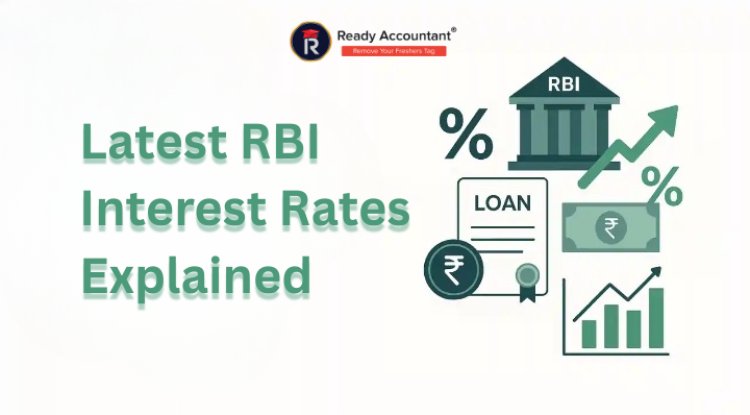Everything You Need to Know About IPOs
This comprehensive guide explains everything you need to know about IPOs in 2025—from understanding the IPO full form (Initial Public Offering) and the step-by-step IPO process in India, to exploring DRHP, SEBI IPO guidelines, and how to apply for IPOs using ASBA. It also highlights key sectors with upcoming IPOs in 2025 and offers a practical IPO investment guide for beginners. The post further encourages aspiring finance professionals to enhance their careers by enrolling in industry-relevant programs like Certified Corporate Accounting, SAP FICO, and Taxation (Income Tax & GST) at the best accounting institute in Kolkata. Whether you're an investor or accounting student, this guide equips you with essential knowledge to make informed decisions in the capital market.

In the ever-evolving financial market, IPOs (Initial Public Offerings) are among the most discussed and anticipated events. From seasoned investors to curious beginners, IPOs attract wide attention due to their potential for high returns and market buzz. Whether you want to invest in an upcoming IPO or simply understand how companies go public, this guide provides everything you need to know about IPOs in 2025.
What is an IPO?
IPO full form stands for Initial Public Offering. It is the process by which a private company offers its shares to the public for the first time and becomes a publicly listed company on a stock exchange such as NSE or BSE in India.
When a company needs capital to expand, innovate, or repay debts, it often turns to the public through an IPO. Investors, in turn, get an opportunity to purchase shares at the offering price and become partial owners of the company.
Initial Public Offering Explained
The Initial Public Offering, explained simply, means the transition of a company from private to public ownership. This event involves a complex interplay of regulatory compliance, market readiness, valuation, and investor demand. Some IPOs can multiply an investor's capital significantly—others may lead to losses, making it crucial to understand how the IPO system works.
IPO Process in India: Step-by-Step
The IPO process in India is regulated by the Securities and Exchange Board of India (SEBI). Here’s how it typically works:
-
Hiring Intermediaries: The company appoints merchant bankers, legal advisors, and auditors to manage the IPO.
-
DRHP Filing: The company prepares a Draft Red Herring Prospectus (DRHP), outlining business, financials, risks, and future plans.
-
SEBI Review: SEBI examines the DRHP for compliance with regulations.
-
RHP and IPO Date Announcement: After SEBI approval, the company files the final Red Herring Prospectus (RHP) and announces the IPO dates.
-
Bidding Process: Investors apply for shares during the open window (usually 3–5 days).
-
IPO Allotment: Shares are allotted based on demand, and IPO allotment status can be checked online.
-
Listing: Shares get listed on the stock exchange, and trading begins.
DRHP in IPO – What Is It?
DRHP stands for Draft Red Herring Prospectus, one of the most important documents in an IPO. Filed with SEBI, it contains:
-
Company overview and business model
-
Financial performance and statements
-
Risk factors
-
Promoter details
-
Use of funds
-
Pricing and share structure
For investors, reading the DRHP is critical in making informed decisions. It’s the company’s way of saying, “Here’s who we are and why you should invest.”
SEBI IPO Guidelines
The SEBI IPO guidelines ensure transparency, protect investor interests, and maintain market discipline. As of 2025, SEBI mandates:
-
Minimum 10% public shareholding for large firms
-
Lock-in periods for promoters
-
Mandatory disclosures in DRHP
-
Allotment basis to be fair and lottery-based in the retail category
-
Oversubscription to be handled through pro-rata allotment
SEBI also requires companies to have a minimum number of shareholders post-IPO and maintain continuous listing obligations.
Upcoming IPOs 2025: What’s on the Radar?
The upcoming IPOs in 2025 are creating a buzz in both retail and institutional circles. Some sectors leading the way include:
-
Fintech
-
EV and clean energy startups
-
Healthcare and pharma
-
Manufacturing and defense
-
Consumer technology
Investors can track IPO calendars on stockbroking platforms, news portals, and SEBI’s official website. Keeping an eye on upcoming IPOs allows potential investors to study companies well in advance.
IPO Investment Guide for Beginners
Here’s a basic IPO investment guide for first-time investors in India:
✅ Open a Demat & Trading Account: You need a Demat account to hold shares and a trading account to apply for IPOs.
✅ Check the Company Background: Read the DRHP, understand the business model, financials, and sector performance.
✅ Assess the Valuation: Compare the IPO price with competitors and past financial performance.
✅ Understand the Risks: IPOs can be volatile post-listing. Not all IPOs guarantee profits.
✅ Apply Through ASBA: Use the Application Supported by Blocked Amount (ASBA) via net banking or stockbroker apps.
✅ Track IPO Allotment Status: You can check allotment status on registrar sites like Link Intime or KFin Technologies.
How to Apply for IPO in India
Applying for an IPO is easy with digital platforms. Here’s how you can apply:
-
Log in to your net banking or stockbroking app (like Zerodha, Groww, Upstox).
-
Select the IPO section and choose the IPO you want to apply for.
-
Enter your bid quantity, price (if applicable), and confirm using UPI or ASBA.
-
Wait for the allotment. If allotted, shares will reflect in your Demat account before listing.
Pro Tip: Always apply in the retail investor category (up to ₹2 lakh) to improve chances of allotment. Oversubscribed IPOs usually go through a lottery process.
IPO Allotment Status – How to Check
Once you’ve applied, it’s important to track the IPO allotment status:
-
Visit the registrar’s website (e.g., Link Intime India or KFintech).
-
Enter your PAN, application number, or Demat ID.
-
View your allotment result.
If shares are allotted, your Demat account will be credited. If not, the blocked amount is released automatically within a few days.
Is Investing in IPOs a Good Idea?
Like any investment, IPOs come with risks and rewards. The key benefits include:
Pros:
-
Early entry into promising companies
-
Potential for listing gains
-
Long-term wealth creation if fundamentals are strong
Cons:
-
Listing may be below the issue price
-
Limited historical data to analyze
-
Market sentiment impacts short-term performance
Smart investors analyze fundamentals, compare peer valuations, and invest with a long-term view.
Build Your Career with the Best Accounting Institute in Kolkata
If you're serious about launching a successful career in finance and accounting, enrolling in a Certified Corporate Accounting program is your first step. At the best accounting institute in Kolkata, we offer industry-aligned courses like SAP FICO (Finance & Controlling), Taxation (Income Tax & GST), and Tally Course—all designed to provide practical knowledge and job-ready skills.
Conclusion
From understanding the IPO full form to decoding DRHP in IPO, this guide covers everything you need to know about IPOs, making it your go-to resource in 2025. IPOs can be a great investment opportunity, but only when backed by proper research, understanding, and risk management. Whether you're a first-time investor or a finance student preparing for a career in capital markets, IPO knowledge is a powerful asset in today’s financial world.
What's Your Reaction?




















